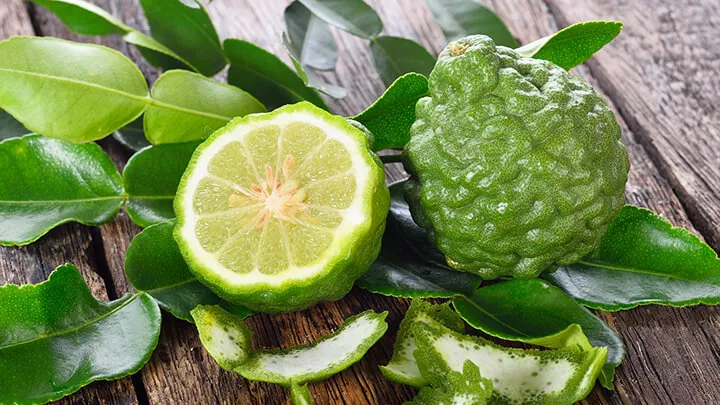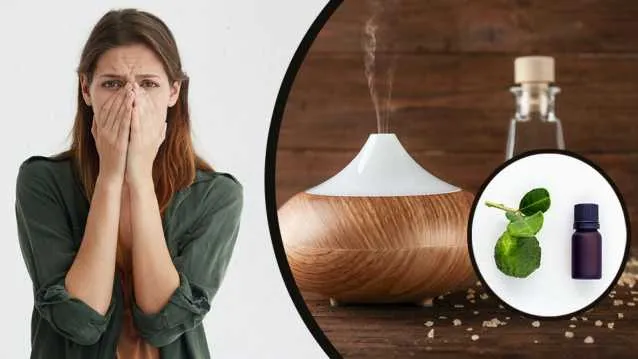As someone with a lifelong generalized anxiety disorder, I have tried many different methods of dialing down the panic. A few that I’ve found to be particularly effective are deep breathing, exercise, art therapy, music (both playing and listening), eating well and making sure I get enough sleep. Additionally, I regularly practice meditation.
While meditation is great on its own and needs no bells and whistles to accompany it, I find that meditating with essential oils can be particularly effective when I’m especially anxious. This type of aromatherapy may also be helpful during a panic attack. Sometimes, during a stressful day, I’ve found it beneficial to put a bit of essential oil on my wrists.
There are many essential oils that have therapeutic effects on lowering anxiety. One of my favorites is lavender — it’s one of the most popular for good reason. It is very gentle, and it helps me to calm my breathing and unwind my tense muscles and mind. However, you’ve probably already heard of lavender, and also the ubiquitous chamomile.
So, to further your anxiety-relief arsenal, the following are six essential oils to ease anxiety which you may not have heard of. Just remember, it’s always wise to talk to a health professional you trust before starting a regimen with essential oils. They’re powerful!
Bergamot

Bergamot, a deliciously sweet fruit in the citrus family, makes for a great calming essential oil. This essential oil has been found by numerous studies to have soothing and mood-boosting properties. According to research published in 2004 in the International Journal of Aromatherapy, bergamot was found to have uplifting, sedative, fear-reducing and anxiety relieving properties.
Another study, published in 2010 in the journal Phytotherapy Research, tested the effects of bergamot essential oil on anxiety in rats. They then compared these effects to the effects of diazepam, a well-known sedative drug often recognized by its brand name, Valium. The results showed that, similar to Valium, bergamot essential oil was able to lower instances of anxious behaviors in the rats.
Furthermore, a study published in 2013 in the journal Evidence-Based Complementary and Alternative Medicine tested the effects of aromatherapy with bergamot essential oil on patients about to receive outpatient surgery. The aim was to see if the aromatherapy session would relieve some of the patients’ pre-surgery anxiety. On their results, the study authors wrote:
“All those exposed to bergamot essential oil aromatherapy showed a greater reduction in preoperative anxiety than those in the control groups. Aromatherapy may be a useful part of a holistic approach to reducing pre-operative anxiety before ambulatory surgery.”
Orange
Along with bergamot, the essential oils of other citrus fruits may also go far in relieving anxiety. One of these is orange. A 2005 study published in the journal Physiology & Behavior tested the effects of both lavender and orange essential oils on people in dental waiting rooms. Upon analyzing their results, the researchers wrote:
“Statistical analyses revealed that compared to control condition both ambient odors of orange and lavender reduced anxiety and improved mood in patients waiting for dental treatment. These findings support the previous opinion that odors are capable of altering emotional states and may indicate that the use of odors is helpful in reducing anxiety in dental patients.”
Geranium
Geranium essential oil has been found to have both calming and refreshing properties, and it may especially help to soothe anxiety in women during those especially trying times in our monthly cycles. A 1995 study published in the International Journal of Aromatherapy tested the anxiety-lowering effects of geranium and rosemary essential oils on a dozen undergraduate students. Based on their research, the study authors concluded:
“With Geranium oil inhalation, both state and trait scores were significantly lowered across the session. The reduction in reported anxiety is probably only of sufficient magnitude (18 percent) to be clinically important for state anxiety following geranium oil inhalation.”
Rose
This essential oil is pricey, but it’s also potent. A 2009 study published in Natural Product Communications sought to test the effects of rose essential oil on the mood and emotions of 40 healthy volunteers. The essential oil was applied to the skin of the participants and a control group received a placebo. After analyzing the results, the researchers found:
“Compared to placebo, rose oil caused significant decreases of breathing rate, blood oxygen saturation and systolic blood pressure, which indicates a decrease of autonomic arousal. At the emotional level, subjects in the rose oil group rated themselves as more calm, more relaxed and less alert than subjects in the control group. These findings are likely to represent a relaxing effect of the rose oil and provide some evidence for the use of rose oil in aromatherapy, such as causing relief of depression and stress in humans.”
Clary sage
Clary sage essential oil has been used traditionally for many generations to help relieve stress, lift spirits, and help alleviate depression and anxiety symptoms. It may also aid in hormonal balance and promote better sleep. A great one to use in the evenings during meditation.
Cedarwood
Cedarwood is a wonderful essential oil to use during meditation, or whenever you want to feel grounded. It may help improve sleep and may help to soothe an overactive mind. It is also a potent anti-inflammatory oil. Try rubbing a bit of the diluted oil on the soles of your feet before meditation.
Ways to use your essential oils to unwind
If you’re feeling anxious, here are some ways to use essential oils:
- Dilute a few drops of your favorite oil (or mix and match) in about a teaspoon of organic virgin coconut oil. Rub the oil between your palms, and bring your palms up to your face, being careful not to touch your eyes. Breathe slowly and deeply, taking in the aroma of the oil.
- Put a few drops of essential oil in a diffuser. A meditation room is a great place to put an essential oil diffuser.
- Rub some diluted essential oil onto your pressure points, such as the back of your neck, your temples, and your wrists before you meditate.
Struggling with anxiety? Take this 45 second quiz to find out your anxiety score! =>
— Tanya Mead

